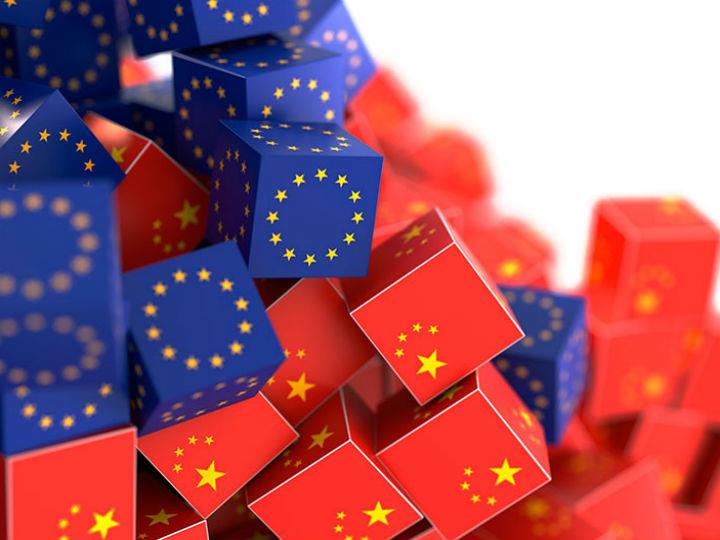by Fraser Cameron*
2020 will be a decisive year for the EU’s relations with China. The two sides are struggling to conclude an investment treaty while there are continuing disputes over human rights and whether to allow Chinese tech giant Huawei to exploit Europe’s 5G market.
2020 will see not just one but two summits: the regular summit in April in Beijing when Chinese Premier Li Keqiang will meet the new EU leadership; and another in September when President Xi Jinping will travel to Leipzig for a special summit hosted by Angela Merkel and including all 27 leaders of the EU’s member state.
Whether 2020 ends in success will depend largely on the fate of the long-running bilateral investment treaty negotiations. Both sides have said they are the top priority and the hope is that the deal will be signed when Xi comes to Germany.
Speaking in Brussels in December, Chinese foreign minister, Wang Yi, said negotiations on the investment agreement between China and the EU were a top priority and added he expected the EU to create a level playing field for Chinese enterprises including 5G.
Zhang Ming, China’s ambassador to the EU, followed this up with a warning that if the EU curbed Chinese investment it could lead to a backlash with Chinese investment moving elsewhere.
Top EU trade officials are sceptical of progress to date. At the 25th round of talks in December China made a modest market access offer based on its recent ‘negative’ list of restricted sectors recently put into domestic legislation.
But the EU wants China to open up on key sectors, such as telecommunications, information and communication technology, health, financial services, and manufacturing.
The EU also wants China to stop forced technology transfers, remove discriminatory authorisation procedures, improve transparency and end subsidies to state-owned enterprises. In addition, the EU wants China to abide by international labour and environment conventions as part of the deal.
The Chinese are tough negotiators and despite Trump’s tariffs wars have conceded relatively little to the US. It will be a major achievement if the EU can achieve its aims by the summer of 2020.
The negotiations are also partially linked to reform of the WTO where the EU has been pushing for curbs on industrial subsidies and new rules for e-commerce. Unlike the US, China has been talking about the need to preserve the multilateral system but has been slow to respond to EU proposals.
Huawei
The US has been lobbying hard to prevent EU members from using Huawei in its future 5G networks. Many European countries do not wish to anger Beijing, a significant trading partner, while the U.S., an important security ally, has repeatedly said it may reassess intelligence sharing with countries that utilize Huawei in their 5G networks.
In December the EU agreed its member states should adopt a ‘comprehensive and risk-based’ approach to the security of 5G, which includes using only trustworthy parties for components critical to national security, and should consider the laws of a supplier’s home country before buying their products.
In Germany, the Bundestag has taken a more critical view than Merkel with a decision postponed until the spring. The Chinese ambassador to Germany did not help matters by linking acceptance of Huawei to German car exports to China.
Parliamentarians from several EU countries including the UK, Italy, Sweden and the Czech Republic have also voiced concern about using Huawei.
Some European companies are beginning to turn their back on Huawei. Deutsche Telekom said it was hoping for “political clarity for the 5G build-out in Germany as soon as possible” as it announced it had stopped orders on 5G equipment due to Huawei’s uncertain status.
No other major European telecommunications company has announced a full ban, although Vodafone Group Plc in January suspended purchases of Huawei gear for the core of its European networks. The problem is that European suppliers of 5G equipment such as Nokia and Ericsson are at least two years behind Huawei in technological development.
Human Rights
China was angered when the European Parliament awarded its 2019 Sakharov Prize to Ilham Tohti, the imprisoned champion of Uyghur minority rights.
The parliament passed a resolution urging the Chinese government to release Tohti, and called for China to respect minority population rights and allow international inspections of the ‘re-education’ centres in Xinjiang.
EU concerns mirror those in the US where Congress has passed legislation sanctioning officials involved in the running of the detention centres.
Hong Kong has been another issue causing tension with the EU calling for dialogue and an end to violence while Beijing has warned the EU not to interfere in its internal affairs. Some MEPs have also called for sanctions against the government in Hong Kong.
Divide and Rule
The EU has never been a fan of the 17+1 group of East European and Balkan countries established by China to pursue common development aims. In the eyes of Brussels the set-up is a scarcely veiled effort at divide and rule.
To Beijing, it is a group that experienced communism for several decades and have different requirements to Western European member states. The 17 seem to have gained little from the arrangement as most Chinese investment in Europe goes to the major member states.
But 17+1 still continues as most political leaders value the opportunity of a selfie with the Chinese president.
Cooperation
If the EU and China are becoming rivals in the above areas there are also promising avenues of cooperation. The two sides have worked well together on Iran, on Afghanistan, on climate change and are seeking to cooperate on ocean governance and areas of connectivity.
China has its Belt and Road Initiative while the EU is pursuing its own connectivity partnerships, most recently signing an agreement with Japan. There are possibilities of synergy as long as China accepts EU principles of transparency and sustainability.
Conclusion
Neither the EU nor China can afford to ignore the US and both Brussels and Beijing will be following Trump’s campaign for re-election with close interest. US elections always involve a certain amount of ‘China-bashing’ and Washington will no doubt continue to seek EU support for its efforts to contain China.
But the EU should define and defend its own interests vis-a-vis China. It is also difficult to imagine that China would wish a trade war with the EU to add to its trade war with the US. There are thus many problems ahead and all one can say with certainty is that 2020 will be a bumpy road for EU-China relations.
*former EU civil servant, currently Director of the EU-Asia Centre
**first published in: www.euractiv.com




 By: N. Peter Kramer
By: N. Peter Kramer

